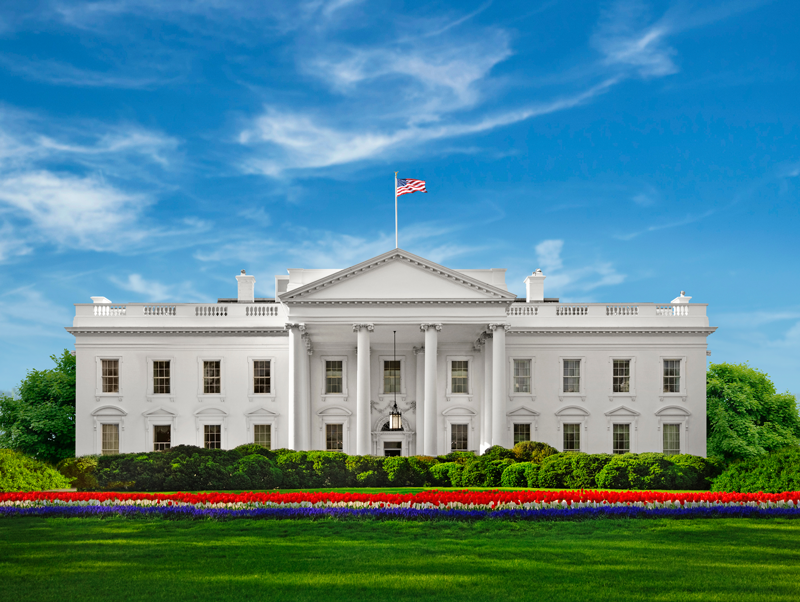Digital World
President Biden's Future of Work Plans
The future of work was on a lot minds during the 2020 Democratic presidential primaries. Candidates proposed retraining truckers, instituting modified forms of universal basic income and reconstituting jobs in post-industrial cities decimated by automation.
President-elect Joe Biden’s future-of-work stance has been harder to discern. While his stump speeches and policy proposals hammer home key Democratic talking points — the importance of the middle class, wage stagnation, fairer taxes, increased bargaining power for workers, infrastructure renewal and higher education reform — he has not yet offered a calibrated policy response to technology and automation’s looming impact on millions of American workers over the next decade.
As Biden seeks to unify his party and draw in President Trump’s supporters, the future of work should serve as a unifying, bipartisan rallying cry from the upper Midwest, to fast-changing swing states such as Arizona, Georgia, and Florida. Although “economic recovery” is listed as one of Biden’s four core issues to address during the transition, an explicit future of work plan would mend political fences, and ensure that the United States does indeed build back better.

Presidents & Policy Responses
Previous administrations have acknowledged the looming challenges posed by technology and automation, and have used their soapbox to highlight the issue. President Donald Trump created the Office of American Innovation to, in part, focus on the “workforce of the future.” President Barack Obama launched white papers examining the impacts of artificial intelligence and automation on workers. While these efforts did a lot to raise awareness, few concrete policy proposals have been advanced.
As Biden seeks to unify his party and draw in President Trump’s supporters, the future of work should serve as a unifying, bipartisan rallying cry from the upper Midwest, to fast-changing swing states such as Arizona, Georgia, and Florida.
The Biden administration’s future-of-work efforts will be influenced by his worldview and his base, but also by the pall cast by external circumstances. COVID-19 continues to rage unabated, the economy and employment remain shattered, and debt is forecast to leap to 106 percent of GDP by 2039.
This crisis poses formidable challenges. But COVID-19 has ushered in the wholesale digitalization of our economy, which means the future of work is already here. With nearly 13 million jobs lost to the pandemic-induced recession, the administration needs an explicit future-of-work game plan. Building back better requires it.
(Re)Formalizing the Gig Economy
In 2019, nearly 59 million Americans participated in some form of freelance work. With freelancing now an integral part of the economy (and a key contributor to workers’ livelihoods), policymakers have homed in on the provision of health care, benefits and worker protections not normally afforded to freelancers.
Biden has backed efforts to classify freelancers as bona fide employees. He supports the Protecting the Right to Organize Act (PRO Act), which would federalize the three-pronged ABC test used by California to determine a worker’s contractor status. Proposition 22, a California ballot measure to reverse the state’s broadened definition of employee, went before voters on November 3, providing the administration with a model to emulate as it seeks to pass the PRO Act.
Biden has also voiced support for legislation that would scale back “right-to-work” laws that permit employees to opt out of unions and dues-paying. And he would direct the Labor Department to increase the number of investigators in labor and employment enforcement to combat the “misclassification” of freelancers.
Broadly, Biden’s proposals would reformalize employment by extending employee or quasi-employee status to millions of people engaged in gig work.
Freelancers have become the lifeblood of pandemic-fueled industries such as ridesharing, grocery delivery and warehouse fulfillment centers. Broadly, Biden’s proposals would reformalize employment by extending employee or quasi-employee status to millions of people engaged in gig work. If Biden’s proposals bear fruit, millions of workers would be affected and the business models of emerging industries and technologies would be scrambled.

Green Transitions
During his campaign, Biden promised to create 10 million clean energy jobs to put the United States on the path to 100 percent clean energy “no later than 2050.” Many of these jobs will be targeted at workers displaced by the COVID-19 pandemic, which wiped out positions involving a lot of “high touch” or repetitive tasks.
In stump speeches, Biden singled out the coal mining and steel industries as particularly ripe for transition. Despite Trump’s systematic dismantling of environmental rules and regulations, in 2019, coal mining employment hit an all-time low of 50,361 and the steel industry employed just 86,000. The former president’s excessive focus on coal and steel jobs tends to obscure the plight of the tens of millions of Americans in “highly automatable” jobs in retail, fast food, warehousing and logistics, among many other industries. Research has shown that these highly automatable jobs predominate in Sun Belt swing states such as Arizona, Nevada, and Florida.
The former president’s excessive focus on coal and steel jobs tends to obscure the plight of the tens of millions of Americans in “highly automatable” jobs in retail, fast food, warehousing and logistics, among many other industries.
When it comes to green jobs, Biden envisions shifting jobs from one sector to another. In other words, fewer coal miners and more solar installers. Implementation of his plan rests on combining new technologies in the form of more efficient wind turbines and solar cells, higher capacity batteries and hydrogen technologies. But by their nature, these new technologies will be more efficient and labor-saving, meaning we might need fewer solar panel installers than we did miners when coal was at its peak. Policymakers will need to account for that in their plans.
Thankfully, Biden’s proposal already has support on the Hill. In June, the House released plans to create a National Transition Office that would help miners and other displaced workers via a mélange of wage replacement, training and assistance with job placement.
Yang Gang Resurgence
Although their core policy proposals were not explicitly endorsed by Biden during the campaign, the field of 2020 candidates will undoubtedly play a role going forward. As recently as September, Andrew Yang essentially echoed Biden’s calls to reformalize gig work, saying he would urge a Biden Labor Department to rectify WWE’s treatment of its professional wrestlers, who it classifies as contractors but whose names and likenesses it controls. Yang also discussed the need to extend portable benefits to freelancers and workers changing jobs as well as the potential introduction of universal basic income if he were named Biden’s labor secretary.

Yang left his mark on the campaign and, perhaps most importantly, vaulted the future of work to a top-tier issue. Support among Democrats for universal basic income rose from 56 to 71 percent between February 2019 and August 2020. Having adopted the policy as orthodoxy, many Democratic voters may be unsatisfied with half-measures on the future of work.
The Future of Work Unifier
As President-elect Biden builds out the transition, it will not be hard to find ideas, statements, and kindred spirits eager to make a break from the past four years. However, given the close election results, Biden needs policies that unify rather than differentiate. The future of work is an underexploited golden opportunity. In his first 100 days in office, Biden should create an explicit future-of-work plan that helps workers and businesses adapt to the ways technology and automation are changing their lives. In doing so, Biden could unite his party, his opposition, and the country.